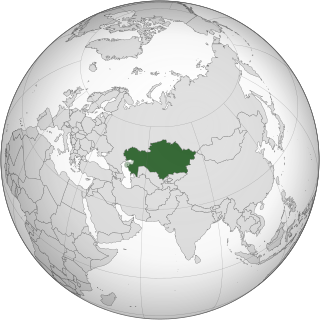
Cannabis, also known as marijuana or weed among other names, is a non-chemically uniform drug from the cannabis plant. Native to Central or South Asia, the cannabis plant has been used as a drug for both recreational and entheogenic purposes and in various traditional medicines for centuries. Tetrahydrocannabinol (THC) is the main psychoactive component of cannabis, which is one of the 483 known compounds in the plant, including at least 65 other cannabinoids, such as cannabidiol (CBD). Cannabis can be used by smoking, vaporizing, within food, or as an extract.

Cannabis in the United Kingdom is illegal for recreational use and is classified as a Class B drug. In 2004, the United Kingdom made cannabis a Class C drug with less severe penalties, but it was moved back to Class B in 2009. Medical use of cannabis, when prescribed by a registered specialist doctor, was legalised in November 2018.

Cannabis in Papua New Guinea is illegal, but the nation is a significant producer and consumer of cannabis. Cannabis is sometimes called spak brus in local parlance.

Cannabis in Syria is illegal. Under the policies of the Syrian Arab Republic cannabis is illegal and punishable by up to 20 years in prison in large drug trafficking offenses, if someone is considered an addict by the Syrian government then they face no criminal penalties for drug use and possession. Since the start of the Syrian civil war cannabis laws have become widely unenforced by the Syrian government as well as Kurdish and rebel controlled territories, while civilians growing cannabis in Jabhat al-Nusra controlled territory face arrest. On multiple occasions Bashar al-Assad granted general amnesties to multiple crimes which included drug trafficking offenses.
The list includes and details significant events that occurred in the global history of national-level implementations of, or changes made to, laws surrounding the use, sale, or production of the psychoactive drug cannabis.
Cannabis is illegal in Benin. The country is not a major drug producer or consumer, but increasingly serves as a transshipment point for drugs produced elsewhere. Cannabis is the only drug produced locally in Benin, though mostly on a small scale.
Cannabis is present in Somalia, and noted in the Somali 1971 penal code. Reports in 1970 and 1971 note that it is one of the few narcotic drugs found there, other than the locally very popular khat leaf.
Cannabis in the Cayman Islands has been legal for medical purposes since 2017. The use of cannabis for recreational purposes still remains prohibited.
Cannabis in Montserrat, the British Overseas Territory in the Caribbean Leeward Islands, is illegal under British law.

Cannabis in Yemen is illegal. Cannabis is less common in Yemen than khat.
Cannabis in Ghana is illegal without license from the Minister of Health, but the nation is, along with Nigeria, among the top illicit cannabis-producing countries of West Africa. Cannabis in Ghana is known as weed or devil's tobacco.
Cannabis in Cameroon is illegal; the drug is locally referred to as banga.
Cannabis in Mozambique is illegal; the drug is locally referred to as suruma.
Cannabis in Senegal is illegal; the drug is locally referred to as yamba.

Cannabis in Kazakhstan is illegal.
Cannabis in Ivory Coast is illegal. The country produces some amount of low-grade cannabis for local and regional consumption.
Cannabis in the Republic of the Congo is illegal. Cannabis is known locally as mbanga.
Cannabis in Liberia is illegal.
During the administration of American President Jimmy Carter (1977–1981), the United States gave further consideration to the decriminalization of cannabis (marijuana), with the support of the president. However, law enforcement, conservative politicians, and grassroots parents' groups opposed this measure. The net result of the Carter administration was the continuation of the War on Drugs and restrictions on cannabis, while at the same time cannabis consumption in the United States reached historically high levels.





